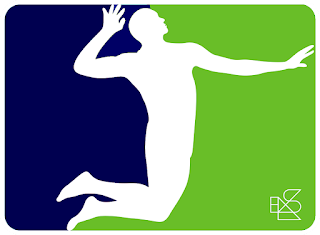Aptitude + Desire = Talent
I recently wrote about Sport Specific Physical Aptitude (SSPA) as a better way of explaining what we actually mean when we generally describe 'Talent'. But that doesn't answer what 'Talent' actually is.
If aptitude for the sport is only part of the picture, then what is the rest? The answer is Desire, and it is measured (probably not the right word) by the relationship between what you think you are sacrificing and what you think you are gaining. Now, this seems like it would be the same for all people, but it is not, it is very individual.
I was fortunate to be on the coaching team of a team who came 5th at the Olympics in beach volleyball. A few years later, shortly after retirement, one of the players was doing a school talk. She was asked by one of the kids to explain what she had sacrificed for her career. She thought about it and told the kid that she hadn't actually sacrificed anything. A couple of nights later she was at dinner when the waiter asked if she wanted any dessert. She was about to say no when she suddenly thought, hang on, why not? It was then that she realised she hadn't had dessert for about 8 years, but she had never thought of it as a sacrifice, it was just a common sense choice: 'I want to achieve this, that will not help me, so I won't have it.'
Rare athletes are the best in both areas. Michael Jordan, Misty May, Serena Williams and Karch Kiraly are all athletes who seem like they could have had both the most ability and the most desire,
So next time you hear someone telling you about an athlete who 'had it all' or who 'could have been phenomenal', what you are probably hearing about is someone who had aptitude, but not enough desire.



I think desire is a bad choice of word. SPAA can be measured. I can measure if one athlete is taller/faster/stronger than another, but i can't measure how much more desire one athlete has than another. There's a difference between actually doing what you know you have to do and desiring too. Why is it that some athletes can say no to eating dessert for 8 years but others can't? It's Self Discipline, Resilience, Impulse Control and Delayed Gratification - all aspects of emotional intelligence. Like SPAA some people are predisposed to having more of it than others. It can be measured at an early age: https://volleyballblog.wordpress.com/2012/06/26/emotional-intelligence-part-ii-walter-mischel-delayed-gratification-and-the-marshmallow-test/
ReplyDeleteThanks for your thoughts Hugh.
ReplyDeletePerhaps there is a better term than desire, but the way it works for me is that it is an all-encompassing term, much like aptitude or ability.
There are certainly some aspects of SPAA that can be measured, but even then, that is only good for comparison, not absolute assessment. For example, we can rank the height of athletes, but we couldn't reasonably rank them even if we knew them.
Desire too is composed of many different aspects. Self Discipline, Resilience and the others you mentioned are certainly some of the relevant ones. Though there are many others.
Do you have another word you think would be better?
Any in that set from the Emotional Intelligence set of concepts/literature: Resilience, Self-discipline, self-regulation, impulse control, delayed gratifaction. Impulse Control and Delayed Gratification are my 2 favourite ones. Not eating dessert for 8 years is a perfect demonstration of Impulse Control and being able to Delay Gratification
ReplyDelete